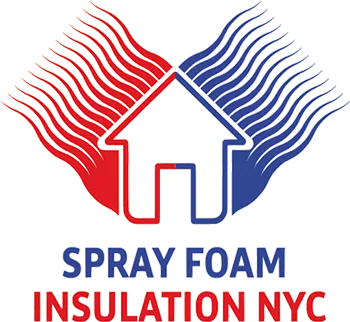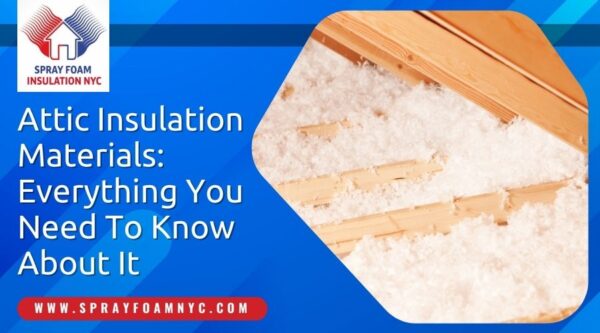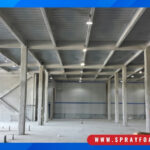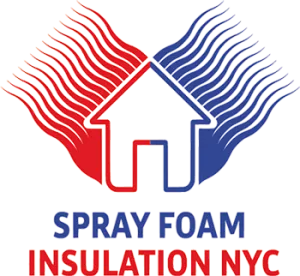The significance of proper attic insulation services cannot be emphasized enough when it comes to establishing an energy-efficient and cozy home environment. By selecting the right attic insulation materials, you can substantially diminish energy loss, elevate indoor comfort levels, and ultimately reduce expenses on utility bills. In this article, we will thoroughly investigate various types of attic insulation materials, examine the crucial factors to consider while making your choice, and highlight the multitude of benefits that arise from ensuring your attic is properly insulated. Attic spray insulation
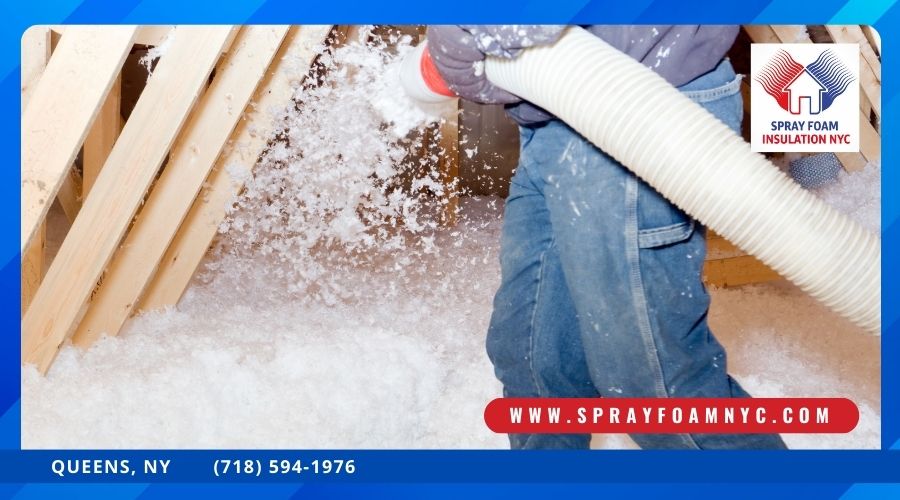
Importance of Attic Insulation Materials
- Energy Efficiency: Attic insulation helps in reducing the transfer of heat between the attic and living spaces. This reduces the amount of energy required to heat or cool your home, leading to lower energy bills.
- Improved Comfort: Proper insulation helps maintain a more consistent indoor temperature, eliminating hot or cold spots and creating a comfortable living environment throughout the year.
- Cost Savings: By reducing energy consumption, attic insulation can result in significant cost savings on heating and cooling expenses over time.
Types of Attic Insulation Materials
- Fiberglass Insulation: Fiberglass insulation is one of the most common and widely used materials for attic insulation. It consists of tiny glass fibers that trap air, slowing down heat transfer. It is available in rolls, batts, or loose-fill form.
- Cellulose Insulation: Made from recycled paper or plant fibers, cellulose insulation is an eco-friendly option for attic insulation. It is treated with fire-retardant chemicals and can be blown into attics or installed as batts.
- Spray Foam Insulation: Spray foam insulation expands upon application, sealing gaps and creating an airtight barrier. It provides excellent insulation and also acts as a moisture and air barrier.
- Mineral Wool Insulation: Mineral wool insulation is made from volcanic rock or slag, spun into fibers. It offers good thermal and sound insulation properties and is suitable for attics with high moisture levels.
Factors to Consider when Choosing Attic Insulation Materials
R-Value: The R-value measures the insulation material’s ability to resist heat flow. A higher R-value indicates better insulation performance. Consider your climate and the desired energy efficiency when selecting the R-value.
- Moisture Resistance: Attics can be prone to moisture issues. Choosing insulation materials with moisture resistance properties helps prevent mold growth and maintain insulation effectiveness.
- Fire Resistance: Safety is crucial when selecting attic insulation. Look for materials with fire-resistant properties to enhance the overall safety of your home.
- Installation Process: The ease of installation can vary between insulation materials. Consider whether you plan to install it yourself or hire a professional insulation installer to ensure a proper and efficient installation process.
Benefits of Proper Attic Insulation Materials
- Energy Efficiency: Proper attic insulation reduces energy loss, making your home more energy-efficient. This results in lower utility bills and a reduced environmental impact.
- Improved Comfort: With effective insulation, you can maintain a consistent indoor temperature, eliminating drafts and ensuring a comfortable living space all year round.
- Cost Savings: By reducing heating and cooling demands, proper attic insulation can lead to substantial long-term cost savings on energy bills.

Tips for Installing Attic Insulation
Assessing the Current Insulation: Before installing new insulation, evaluate the existing insulation in your attic. Determine if it needs to be removed or if new insulation can be installed on top of it.
- Sealing Air Leaks: Seal any gaps, cracks, or air leaks in the attic to prevent air infiltration. This will improve the overall effectiveness of the insulation.
- Proper Ventilation: Ensure proper attic ventilation to avoid moisture buildup. Good ventilation helps prevent mold growth and ensures the longevity of the insulation materials.
- Hiring a Professional: While some homeowners may choose to install attic insulation themselves, hiring a professional attic insulation service provider ensures proper installation, maximizes energy efficiency and avoids potential issues.
Transform Your Home’s Comfort with Premium Attic Insulation Services
Attic insulation is a vital component of an energy-efficient and comfortable home. By understanding different types of insulation materials, considering important factors, and following installation tips, you can make an informed decision that enhances your home’s energy efficiency, comfort, and cost savings. Proper attic insulation is an investment that pays off in the long run, providing a more sustainable and enjoyable living environment.
FAQs
How often should attic insulation be replaced?
Attic insulation typically lasts for many years, but it may need replacement if it becomes damaged, or compressed, or if there are signs of mold or pest infestation. It’s recommended to assess the condition of your insulation every 10-15 years.
Can I install insulation on top of the existing insulation?
In some cases, you can install new insulation on top of existing insulation, provided it is in good condition and not excessively compressed. However, it’s crucial to consult with a professional to determine the best approach for your specific situation.
How long does it take to install attic insulation?
The time required to install attic insulation depends on various factors, such as the size of the attic, the type of insulation, and whether any preparation work is needed. A professional installer can give you a more accurate estimate based on your specific circumstances.
Does attic insulation help with soundproofing?
While insulation can help reduce noise transmission to some extent, its primary purpose is to prevent heat transfer. For effective soundproofing, additional measures such as acoustic insulation or soundproofing materials may be required.
Can I install attic insulation myself, or should I hire a professional?
While DIY installation is possible for some insulation types, hiring a professional insulation contractor in Queens, NY is recommended to ensure proper installation, maximize energy efficiency, and avoid potential issues. Professionals have the expertise and tools to handle insulation projects efficiently and effectively.
